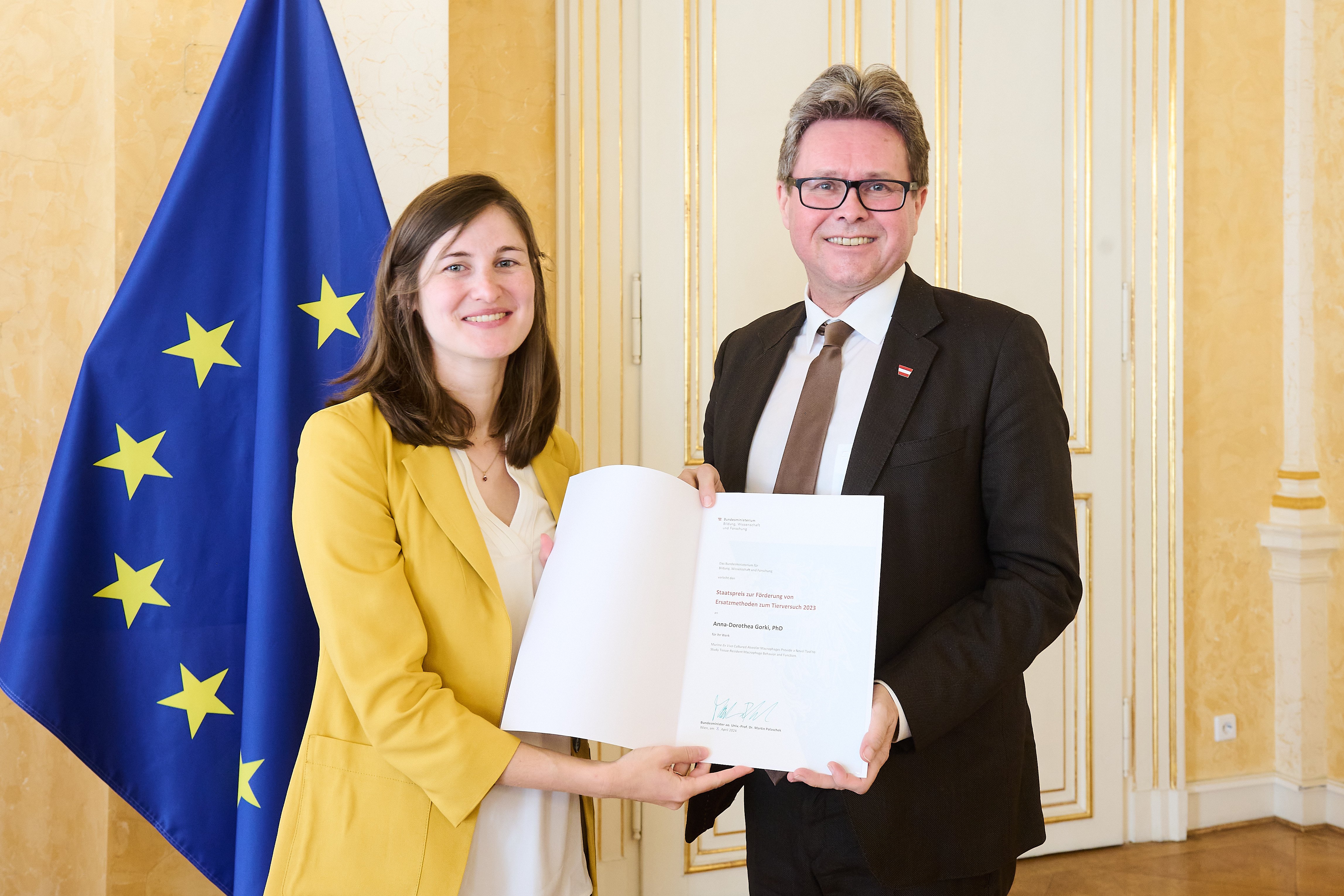
(Vienna, 11 April 2024) Anna-Dorothea Gorki, PhD graduate of MedUni Vienna and employee of MedUni Vienna start-up G.ST Antivirals, has been awarded the State Prize for the Promotion of Alternative Methods to Animal Testing by Science Minister Martin Polaschek.
Anna-Dorothea Gorki developed a new cell culture model to cultivate and multiply murine primary alveolar macrophages - macrophages that reside in the lungs - in vitro over an extended period of time. The study was carried out at MedUni Vienna in Sylvia Knapp's working group and was published in the American Journal of Respiratory Cell and Molecular Biology.
Novel lung cell culture model significantly reduces the number of test animals required
Phagocytes, so-called macrophages, are of crucial importance for organisms as part of the immune system. However, suitable models of these cells for scientific purposes are still very limited and require a large number of experimental animals, e.g. mice. In her scientific work, Anna-Dorothea Gorki presented a novel cell culture model to propagate and study mouse lung macrophages in cell culture over several months. Until then, this had not been possible and the cells could only be used for a maximum of two to four days. By providing a combination of different factors that mimic the lung, the researchers were able to maintain and expand lung goblet cells in their new model for more than 6 months. The cells retain typical morphological characteristics and have known surface markers throughout the cultivation period. They react to danger signals such as bacteria and have a gene profile that corresponds to the original lung phagocytes. Overall, the model provides a novel, simple and versatile tool to study lung gobblers in homeostasis and disease. The model significantly reduces the number of experimental animals required, as the cell culture can be started from the material of a single mouse. That this model has future potential is demonstrated by the strong positive feedback and adoption of the model by laboratories worldwide.
The Federal Ministry of Education, Science and Research has endowed a state prize for outstanding scientific work whose results or objectives, in the sense of the 3Rs principle according to Russel and Burch (1959), are the avoidance (replacement) or reduction (reduction) of the use of animals in animal experiments or the improvement (refinement) of the conditions for the breeding, housing, care and use of animals in animal experiments. The State Prize is awarded annually.
Anna-Dorothea Gorki is an expert in respiratory infections, trained at the Research Center for Molecular Medicine (CeMM, Austrian Academy of Sciences) and at the Medical University of Vienna. She holds a PhD in immunology and is the author of numerous publications in top international journals, including "Cell". She has been Chief Scientific Officer of G.ST Antivirals, a MedUni Vienna start-up, since 2020. G.ST Antivirals focuses on the development of therapies against viral respiratory infections.
The award-winning publication: American Journal of Respiratory Cell and Molecular Biology
Murine Ex vivo cultured alveolar macrophages provide a novel tool to study tissue-resident macrophage behavior and function;
Gorki, A.-D., Symmank, D., Zahalka, S., Lakovits, K., Hladik, A., Langer, B., Maurer, B., Sexl, V., Kain, R., and Knapp, S.
American Journal of Respiratory Cell and Molecular Biology, 28. September 2021
DOI: 10.1165/rcmb.2021-0190OC